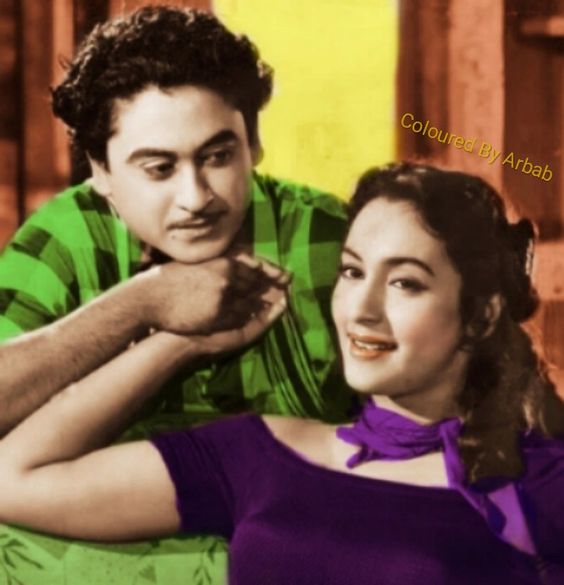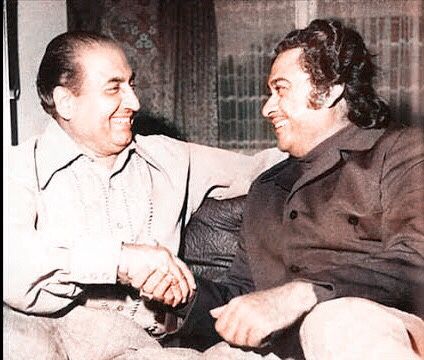Kishore Kumar—a name synonymous with a voice that captivated millions and elevated Bollywood to new heights with timeless songs that remain as vibrant today as they were decades ago. Yet, few know of a dark chapter when the Indian government sought to silence this velvet voice during the Emergency. In this article, film writer and journalist Vinod Kumar unravels the shocking story of why Kishore Kumar’s songs were banned and the bold defiance that defined his legacy.

On June 25, 1975, Prime Minister Indira Gandhi declared a state of Emergency, ushering in a period of unprecedented control. Her son, Sanjay Gandhi, spearheaded a controversial 20-point program, ostensibly for socio-economic reforms but infamous for coercive measures like forced sterilizations, affecting roughly 11 million people. To popularize this campaign, Sanjay sought to leverage Bollywood’s star power, believing its icons could sway the masses.
On April 11, 1976, a grand charity show, Geeton Bhari Shaam, was organized under the Indian Youth Congress banner at Delhi’s Ambedkar Stadium. Bollywood luminaries like Lata Mangeshkar, Dilip Kumar, Asha Bhosle, Mukesh, Mahendra Kapoor, R.D. Burman, Amjad Khan, Amitabh Bachchan, Rakhee, Shashi Kapoor, Shabana Azmi, and Zeenat Aman graced the event. But one star was conspicuously absent—Kishore Kumar, then at the peak of his popularity, his songs on every lip.
When invited to perform, Kishore flatly refused. According to Kishore Kumar: The Ultimate Biography by Aniruddha Bhattacharya and Parthiv Dhar, in January 1976, Vidya Charan Shukla, Secretary of the Ministry of Information and Broadcasting, contacted Kishore. His response was characteristically blunt: “This feels less like a request and more like an order.”

Mohammed Rafi With Kishore Kumar
Kishore’s defiance didn’t sit well with the authorities. On April 29, 1976, a meeting was held in Mumbai with film industry stalwarts like G.P. Sippy, Shriram Bohra, B.R. Chopra, Subodh Mukherjee, and Nasir Hussain. Sippy tried to persuade Kishore, but he remained unmoved, even refusing to meet Joint Secretary C.B. Jain.
In a later interview, Kishore explained, “I did what felt right. Singing at private events is fine, but I bow only to genuine respect, not to anyone trying to trample my dignity.” Years later, in a conversation with journalist Pritish Nandy, he added, “No one can force me to do what I don’t want. I don’t sing on anyone’s orders.”
The government branded his refusal as rebellion. On May 4, 1976, a sweeping ban was imposed on his songs. All India Radio and Doordarshan removed his music from their broadcasts, and even the iconic radio show Binaca Geetmala, hosted by Ameen Sayani, was stripped of his tracks. The sale and distribution of his records were halted, with the Ministry issuing a directive: “All songs by Shri Kishore Kumar are to be banned from Akashvani and Doordarshan. Compile a list of films where he has sung for necessary action. Summon HMV and Gramophone Company representatives to stop the sale of his records.” Sanjay Gandhi and Shukla even pushed for the BBC to cease broadcasting his songs, though this effort was only partially successful.
Kishore’s stand sparked widespread discussion in Bollywood and beyond. Emergency critics like Raj Kapoor, Vijay Anand, and Dev Anand rallied behind him. Eventually, Shiv Sena leader Bal Thackeray intervened, organizing a meeting on June 14, 1976, with Kishore, Raj Kapoor, Vijay Anand, Dev Anand, and Shukla. Kishore agreed to perform at another event for the Sanjay Gandhi Flying Club, and two days later, on June 16, 1976, the ban was lifted.
Kishore Kumar’s rebellion wasn’t just about protecting his self-respect; it highlighted the fraught clash between art and authoritarianism. Though the powers of the time tried to mute his voice, his music continues to resonate in hearts worldwide, a testament to his indomitable spirit.

